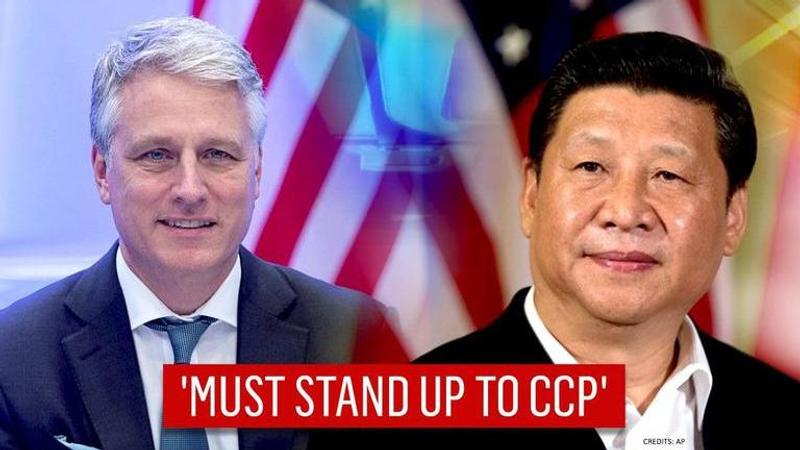Published 20:30 IST, October 11th 2020
US says time has come to accept that talks won't make China change its aggressive stance
US NSA Robert O’Brien's statement comes amid increasing tensions between India & China who are locked in a five-month-long tense border standoff in Ladakh.

The United States National Security Advisor (NSA) Robert O'Brien has said that time has come to accept that talks and agreements will not persuade China to change. O'Brien was speaking in Utah, where he highlighted the Chinese aggression along the Indian border, Taiwan Strait, the South China Sea and said that Beijing will not change by mere dialogue and agreements, adding that the world must stand up to the Communist State in order to achieve change in the country's stance.
China and India are at loggerheads at the Himalayan border for the past couple of months, where troops of both the nations have clashed several times. The tensions between New Delhi and Beijing escalated after 20 Indian soldiers and an unspecified number of Chinese soldiers died in the Galwan valley in June. Commander-level talks have been going on ever since between India and China, but reports of build-ups near the Line of Actual Control (LAC), by both sides, are continuing to emerge.
China is also having issues with Japan in the East China Sea over the Senkaku islands, which is claimed by Beijing, Tokyo, and Taipei. In the South China Sea, the Communist party keeps provoking other nations by building artificial islands and further increasing the line of its original exclusive economic zone. China doesn't even spare a small country like that of Bhutan, apart from the 2017 Doklam stand-off with India, in June this year Beijing raised a new dispute over a territory that had never come in the dispute talks before.
China providing surveillance systems
O'Brien also mentioned China's repeated incursions across the median line in the Taiwan Strait and its strategy to provide loans to under-developed countries and then force borrowers to support Beijing at the United Nations using debt as pressure tactics. O'Brien further noted China's other international aid efforts like providing surveillance systems to failed states like that of Venezuela, North Korea, etc. O'Brien highlighted actions taken by the Trump administration in targetting the Communist Party's intelligence and security apparatus by imposing restrictions on US companies selling technology to Huawei, ZTE.
Updated 20:30 IST, October 11th 2020




